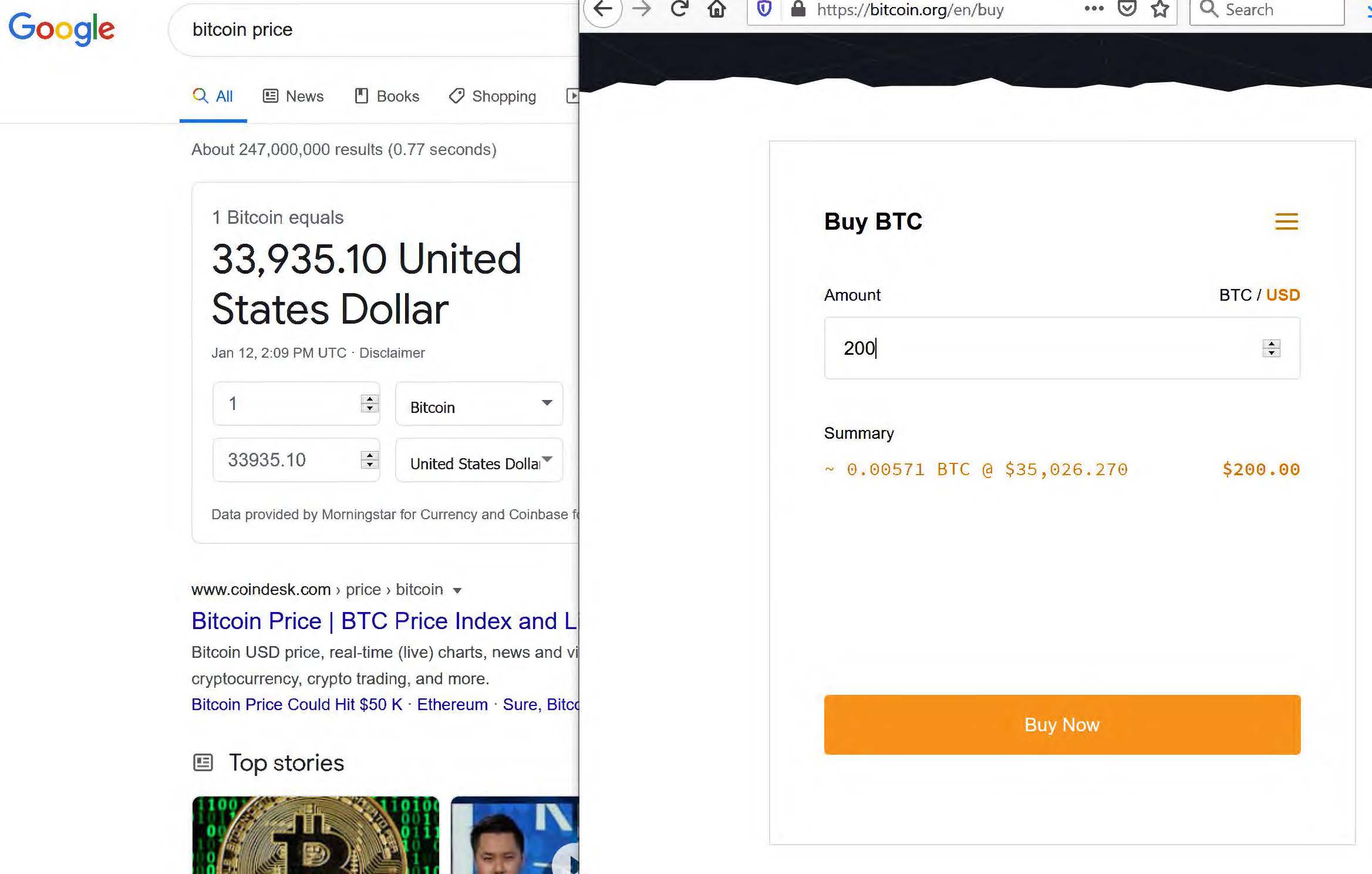On Bitcoin.org, the page on getting started has a button for "Buy Bitcoin". It links to page with a dialog box that appears to be an interface to the service, MoonPay. MoonPay has a page, "What fees do you charge?" From that page and other analysis (described below), I infer that there are at least three fees incurred in a transaction:
Processing fee of either 1% or 4.5% for depositing or withdrawing fiat currency, depending on how the transfer is done. (Strangely, the fees page seems to indicate that withdrawals can only be made to a bank in the EU or UK, which could be a problem for people living elsewhere.)
Dynamic network fee, which is apparently calculated when a transaction is proposed. Nothing is said about how much it might be. Is there a way to know what amount of fee one should anticipate? I have seen block data for a transaction in which the transaction amount was 0.00130696 BTC and the fee was 0.00125343 BTC, or 95% of the transaction amount. Why would anyone ever make a transaction in which the fee is almost equal to the amount of the transaction?
Currency spread, or premium. I compared the exchange rate shown on Bitcoin.org to that shown by Google in the same second:
The difference shows a spread of 35,026.27 / 33,935.1 = 1.032. This indicates that there is a price premium of at least 3% built into the exchange rate used on Bitcoin.org. This premium is like the premium charged by banks for conversion of fiat currencies. It is a hidden fee that both banks and MoonPay don't state in their fee schedules. I figure this is how the crypto exchanges make most of their money.
So my two questions are:
I understand that the "dynamic network fee" is part of the process of operating the blockchain and cannot be avoided. But how can I anticipate in advance how much to expect this fee to be?
I've read that it's possible to transact bitcoin without using an exchange, and I suppose this would eliminate the price premium. What does one have to do in order to transact without an exchange?

